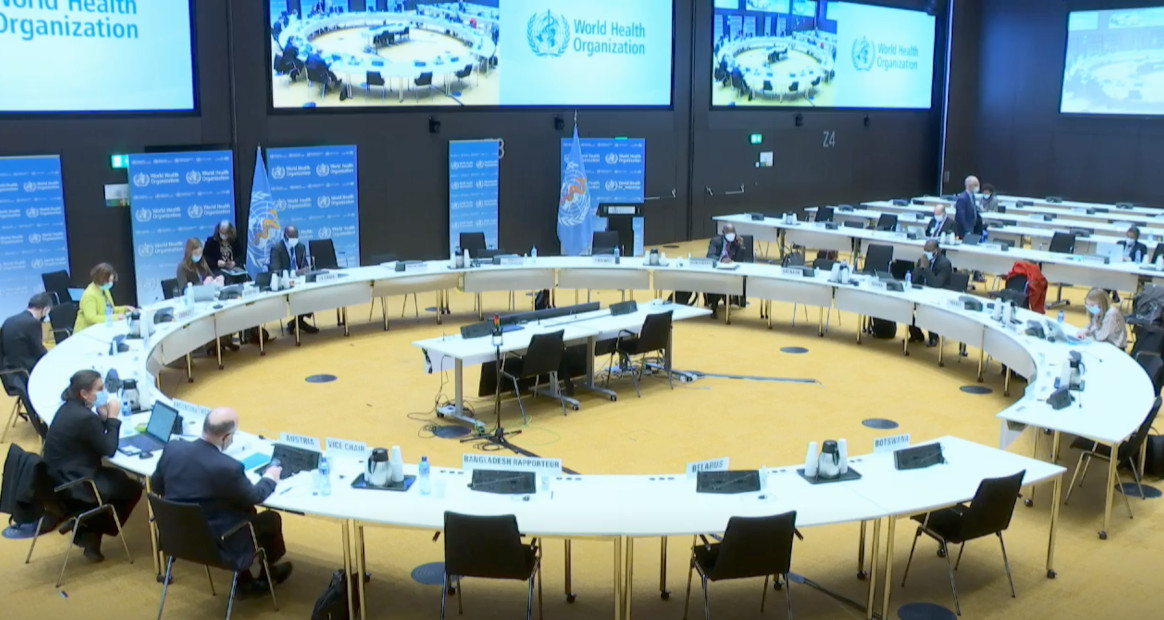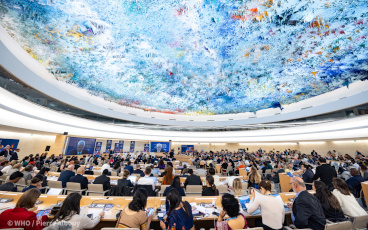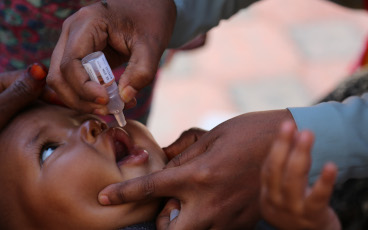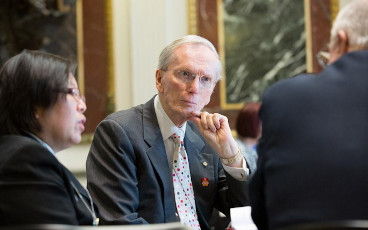Global health leaders note unique opportunity – complacency now biggest risk to success
WHO Executive Board urges intensified efforts to give world one less infectious disease to worry about and work towards sustainability of gains in polio-free countries.

January 2022, Geneva, Switzerland – As the world enters 2022, and with it the year when the new GPEI Strategy 2022-2026 – Delivering on a Promise – takes effect, global public health leaders at this week’s WHO Executive Board urged for intensified eradication efforts to capitalize on a unique epidemiological window of opportunity. 2021 saw the lowest ever levels of wild poliovirus cases in history, with five cases reported from the remaining two endemic countries, Pakistan and Afghanistan. Cases of circulating vaccine-derived poliovirus have also declined compared to 2020.
Delegates attributed this favourable situation to sustained commitment from the highest levels in polio-affected areas, but issued severe warnings against complacency. “2021 set the stage for success,” said WHO Director-General Dr Tedros Adhanom Ghebreyesus. “We must now not lower our guard.”
“What is clear is that in 2022, we have a very real and realistically achievable opportunity to finish wild poliovirus from the world once and for all,” said Aidan O’Leary, Director of the Global Polio Eradication Initiative, WHO. “But what is equally clear from the discussions at the Executive Board is that there is virtually no room for error now. If we take our foot off the accelerator even by a little bit, this virus will come roaring back, and we will perhaps have lost the best chance yet for success. The resounding message from this week’s meeting is this: we cannot allow this to happen. Success is the only acceptable outcome.”
Time and again, delegates, experts and partners such as Rotary International underscored the need to fully implement and finance the GPEI Strategy 2022-2026, highlighting that it clearly laid out the roadmap to achieving a lasting world free of all forms of polioviruses, through stronger community engagement, a renewed focus on gender equity and the rollout of new tools and technologies, including the novel oral polio vaccine type 2.
Delegates expressed appreciation at the polio programme’s ability to adapt to programmatic, epidemilogical and political developments, as demonstrated in Afghanistan last year, where – for the first time in more than three years – nationwide immunization campaigns resumed. At the same time, 2021 again saw the broader benefits of polio eradication, with health workers at the forefront supporting global COVID-19 response, vaccination and immunization recovery efforts, and the polio infrastructure now increasingly being integrated into broader public health systems in polio-free countries across the world.
With over 50 countries transitioning out of GPEI support in 2022, Member States also supported efforts to sustain the gains in polio-free countries, calling on WHO to continue its technical support in polio-free countries, and to ensure that polio assets, tools and expertise are effectively integrated into broader immunization, disease surveillance, primary health care, and outbreak preparedness and response efforts.
“Together with our partners at Rotary International, CDC, UNICEF the Bill & Melinda Gates Foundation and Gavi, the Vaccine Alliance, we will continue to support Member States in their eradication efforts,” concluded O’Leary. “But much is on the line. We have everything in place – we need to focus now fully on optimizing our tools and tactics, and ensuring the resources to do so are available. If those two things come together, we will be able to give the world one less infectious disease to worry about once and for all.”













